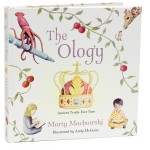Next year marks the 500th Anniversary of Martin Luther nailing his “Ninety-Five Theses” to the Castle Church in Wittenberg. I am a Protestant rather than a Catholic for very convictional reasons, thus we celebrate this moment in our history. Our church is not hostile to Catholicism, but we chose to be Protestant due to essential doctrines of the Christian faith. The early Protestants rallied around what became known as the “5 Solas.” “Sola” is Latin for “alone” and these doctrines outline the exclusivity of 5 essential beliefs. This article is the second in a series of articles on the “Solas” of the Protestant Reformation.
2 Timothy 3:16-17 reads, “All Scripture is breathed out by God and profitable for teaching, for reproof, for correction, and for training in righteousness, that the man of God may be complete, equipped for every good work.” This passage describes the quality of Scripture as “profitable.” It also explains the purpose of Scripture: teaching, rebuke, correction, training in righteousness/godliness, in order for people to carry out the good works they were created to do. What a tool! However, this passage also explains the source of Scripture. The Bible is not ultimately from humans, but rather from God Himself. God breathed out the Bible from within the core of his being. Protestants believe that God spoke through human authors to give us the Bible. This passage has enormous implications for the Protestant view of Scripture.
Protestants view the Bible as inspired by the God. This means we believe the Words of Scripture are the Words of God. Further, we also believe the Scriptures are infallible. The infallibility of Scripture means that in all matters of Christian faith and practice, the Bible is wholly true and useful. We have a distinction between our Catholic friends who believe Popes and even the Catholic Church are infallible. Protestants cannot find verses in the Bible to support the Catholic claims. Further, we believe the Bible is also inerrant. If the Bible comes from a holy God, then it would be a contradiction to claim there are errors in the Bible. God is holy and righteous and thus truthful, thus His Word always tells the truth and is never in contradiction with fact. If one pushes beyond superficiality, we discover that theologians understand this doctrine to apply to the original autographs. This doctrine also leaves room for relative things like grammatical constructions. The key takeaway for Protestants is that we view the Scriptures as the Word of God. God does not lie in little things and thus we can trust Him for all things.
You might be thinking, “ok, thanks for the theology lesson, but what does this mean for my life?” Glad you asked! Sola Scriptura means the Bible trumps all other authorities in our life. Sola Scriptura does not claim the Bible as the only authority but the rather the ultimate authority. For example, tradition and reason are authoritative. Wisdom says we ought to listen to those who have gone before us. I should humbly learn from Aristotle and Jefferson. I should cherish the Second London Confession and ancient liturgy. Additionally reason and science are good and helpful determiners of truth. If science says that smoking cigarettes causes lung cancer, I shouldn’t smoke them and should seek to limit their use.
However, we also know tradition and reason have their shortcomings. Slavery was an institution handed down from the ancients. Racism is not a uniquely American problem. It is a historical fact that racism and slavery are human problems. Both are wicked traditions. Further, the historical record shows reasonable and even scientific arguments were developed to justify racism and slavery. Eugenics was viewed by many as an acceptable science and its arguments were used by southerners in the 1860’s, abortionists in the 1920’s, and Nazi’s in the 1930’s! Clearly humans need something outside of us to referee our developed traditions and our attempts to discover truth through science and reason. The Word is our ultimate authority and thus a truly gracious gift from God!
The Word is a central biblical theme. In Genesis 1 God creates all that is by speaking it into existence. We read in Ezekiel 37 that the Word of God generates life. We learn that the man after God’s heart is to delight in this Word (Psalm 119:16). Leaders guide the spiritual lives of the people by explaining and applying the Word (2 Timothy 4:2).
We celebrate the biblical Protestant doctrine of Sola Scriptura because we need an authority outside of ourselves. Sola Scriptura gives us a needed guide. Sola Scriptura is a sweet grace of God that leads to our conversion. Sola Scriptura also leads to a joyful spirituality.


